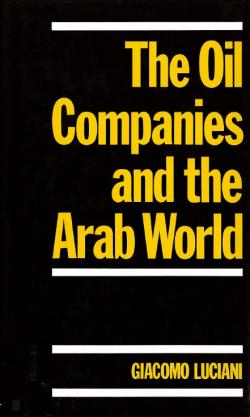The Oil Companies and the Arab World

Vertical integration historically characterized the. international oiI industry. The same company controlled the entire process from crude exploration and production to the retailing of gasoline. But this structure was radically transformed in the 1970s because of government action in the oil producing countries, which took control of crude oil production. As a result, the industry is now disintegrated. Whether this is a long-term trend or just a temporary phase leading to a process of re-integration is the question posed in this book. The attitude of the major international oil companies is explored first, and it is found that their strategic approach is far from uniform. While some of them have abandoned the Arab world altogether, others are trying to consolidate their access to Arab oil on new bases, thus creating the premises for re-integration. The policies adopted by oil producing countries are discussed, showing the limits of purely nationalistic approaches and, on the whole, a tendency towards greater cooperation with the international companies. The policies of oil importing countries also are discussed and the limits of 'government to government' deals underlined. On the basis of these elements, the book proposes alternative scenarios on the evolution of the structure of the international oil industry. In a final chapter the political and strategic implications of re-integration are explored, with consideration to the role of OPEC and relations within the Organization, relations between oil exporters and importers, and relations between the United States, Europe and the Arab world.
Published also: London and New York, Routledge, 2016, ISBN 978-1-138-64781-7; 978-1-138-64782-4 (pbk); 978-1-315-62685-7 (ebk).
List of Abbreviations
Note on Company Names
Conversion Factors
Preface, p. 1-2
Introduction, p. 3-7
1. The Disintegration of the International Oil Industry, p. 8-33
2. The Evolution of the Crude Supply Position of Ten International Companies, p. 34-62
3. The Companies without Vertical Integration?, p. 63-96
4. The Policy of the Producing Countries on Relations with the International Oil Companies, p. 97-123
5. The Policies of the Oil Importing Countries, p. 124-145
6. The Global Strategies of the International Oil Companies and their Attitude Towards the Arab Countries, p. 146-159
7. Evolutionary Trends in the Structure of the International Oil Market, p. 160-178
8. The Political Impact of the Reintegration Process, p. 179-191
Index, p. 192-197


